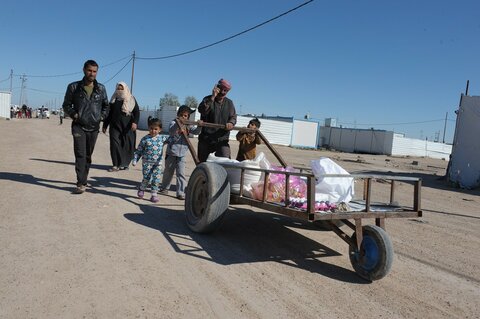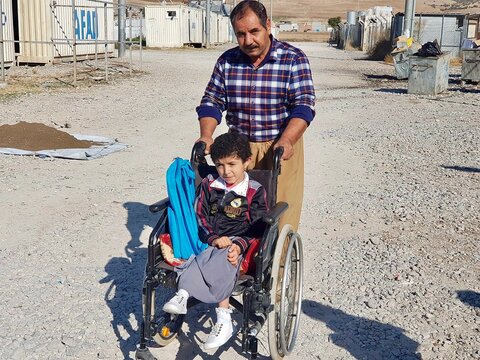Flour power: WFP training boosts women bakers in Iraq
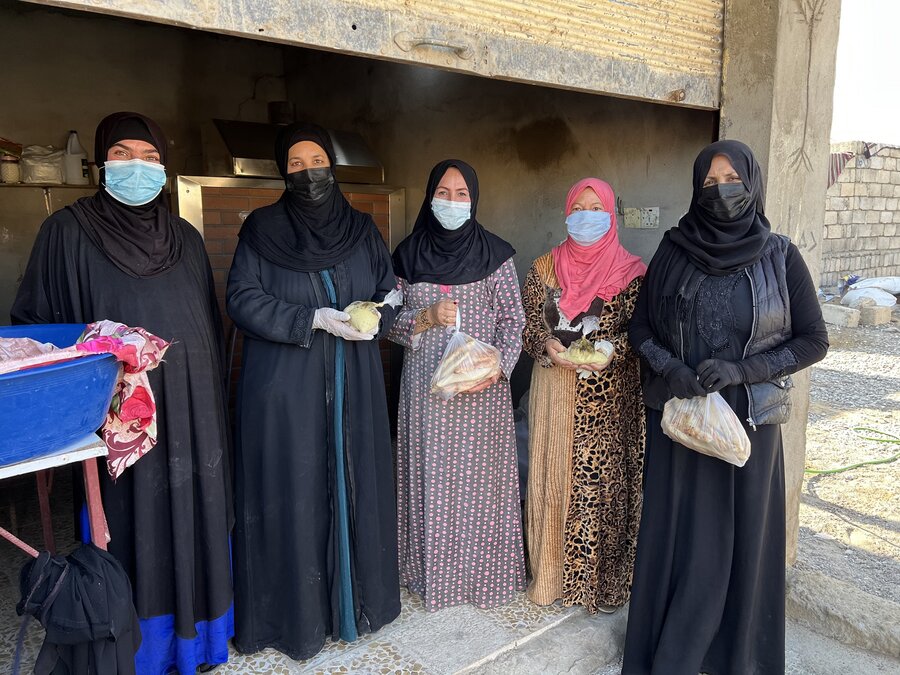
In Nimrud village, not far from the city of Mosul in Iraq, it’s not too difficult to find a good bakery. Here, the smell of freshly baked bread reminds everyone that a warm meal is never too far away.
Behind a set of roller doors, ten women have built a small business with more than just flour and water as part of a project backed by the UN World Food Programme (WFP) and Germany. Here, women entrepreneurs come together to learn new skills, earn an income and make Iraqi treats.
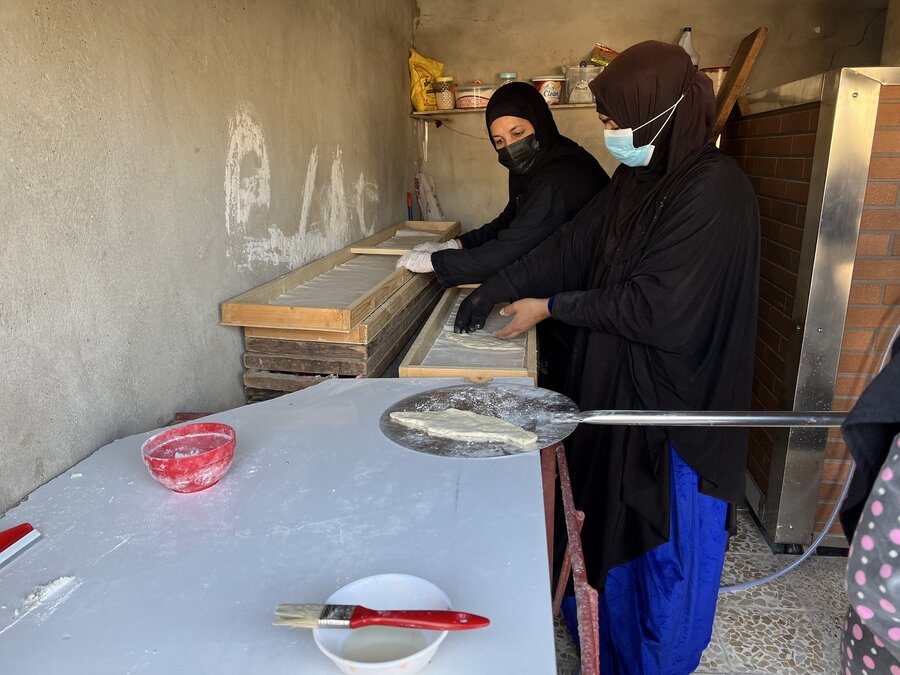
“We are in fact all widows and single mothers,” says Vikra. “Before the conflict, we had some small domestic income, such as sewing.” The women lost their jobs, their belongings and their ability to support their families, due to conflict in Iraq. Some returned home to find nothing but scorched earth where their houses once stood.
They are still recovering, they say. Some were displaced for years and have been forced to rebuild their lives alone. All ten bakers have lost their husbands and say this activity has brought them closer together.
It was their pressing needs as sole providers that made them particularly eligible for the project. Now, step by step, they are building a business.
“We are a cooperative of ten women and rotate every day – five of us work in the bakery, five support from home, all of us split the profits,” says Wadhaha, another participant.
“We buy everything locally as much as we can, we give the business back to our neighbours,” says Sihan. The group received a professional-grade oven from WFP to kick-start their business and this is used by members of their community, whose traditional tanoors (bread ovens) were destroyed in the conflict.
Diamond-shaped samoun buns – an Iraqi staple – are their main product. Crisp on the outside, fluffy on the inside, they are delicious the women say.
The group also makes simple desserts to sell in the neighbourhood, and takes small catering orders for traditional Iraqi dishes such as tepsi baytinijan – aubergine baked with minced meat.
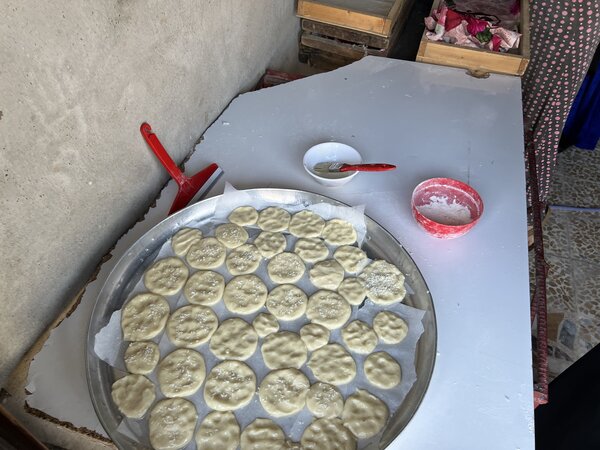
On a typical day, they sell up to 450 bags of samoun bread – with ten pieces in each – and bring in approximately US$300. Some of this bread is sold to local sandwich-makers for the nearby schools, ensuring that students can eat fresh bread each day. After deducting overheads such as flour, key ingredients, cooking gas and electricity, the women earn a modest but sustainable income. Their profits are split evenly among the women, and a portion is invested back into their business to help it grow.
Wadhaha, the group’s bookkeeper, excitedly shows her ledger. “After deducting the costs from the revenue, our income helps support our children and even elders.” Running the bakery in shifts also means the women can continue to manage their household responsibilities.
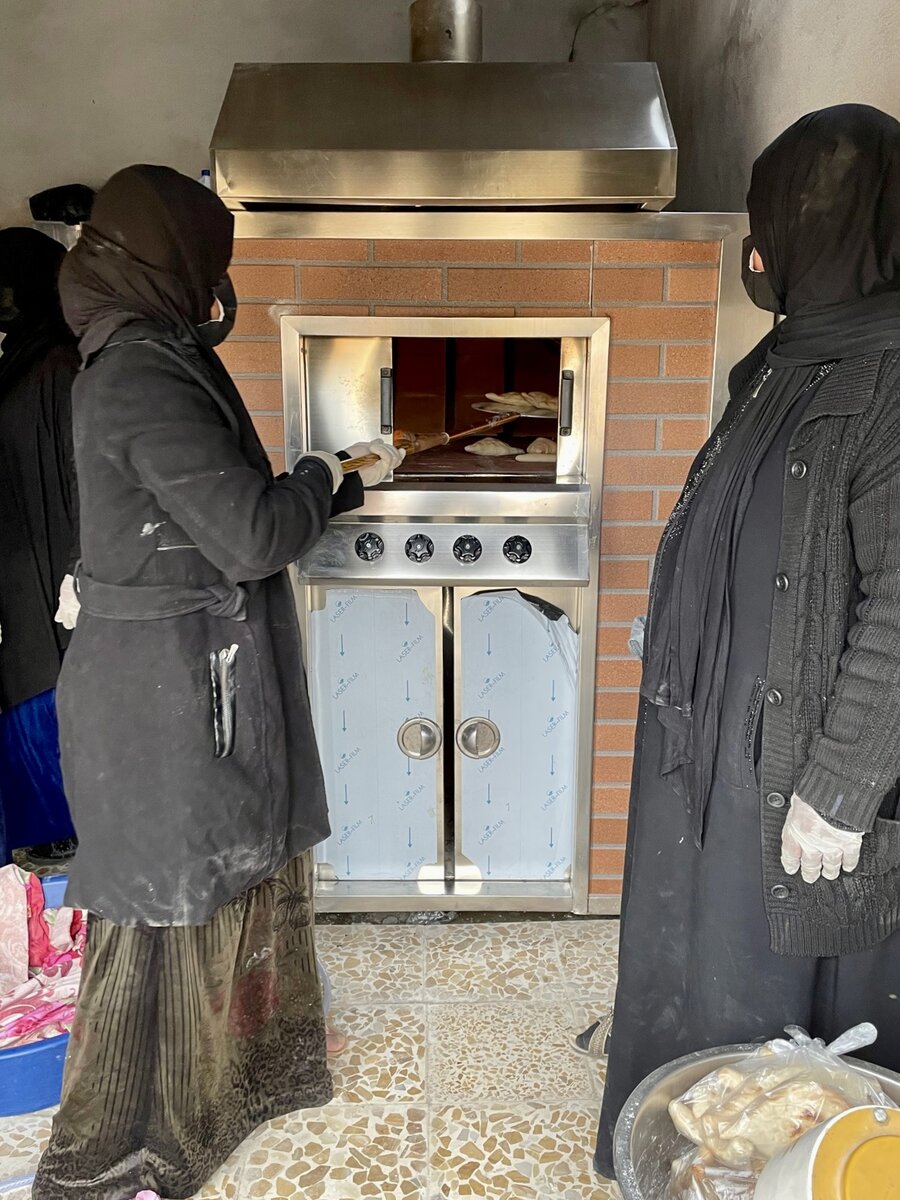
With support from WFP, over the past two years the bakers have received training in nutrition, growing kitchen gardens and how to prepare foods for sale. Some of the women learned to make jams from the fresh fruit they grow in their home gardens. “I learned a lot in the classes,” says Raghad. “Techniques I could apply on the job.”
Through the Ninewa project – run in collaboration by WFP, NGO partner Samaritan's Purse and local authorities – the women also gained business skills that were critical for them to launch and manage their bakery. They have learnt about bookkeeping, managing profit and loss, marketing, food hygiene and how to bake and sell traditional food items, for which there is a steady demand.
When asked what additional support they need, Vikra says with a smile: “An even bigger oven! We are getting more orders for sweets from our community, and we can bake more that way.” The food passes the ultimate taste test when Raghad’s small daughter appears, grabs a piece of samoun, and runs away before her mum can stop her.
Each month, WFP helps up to 712,000 people across Iraq to meet their basic needs at a time when families including internally displaced people are struggling to cope with the effects of conflict and climate change.

